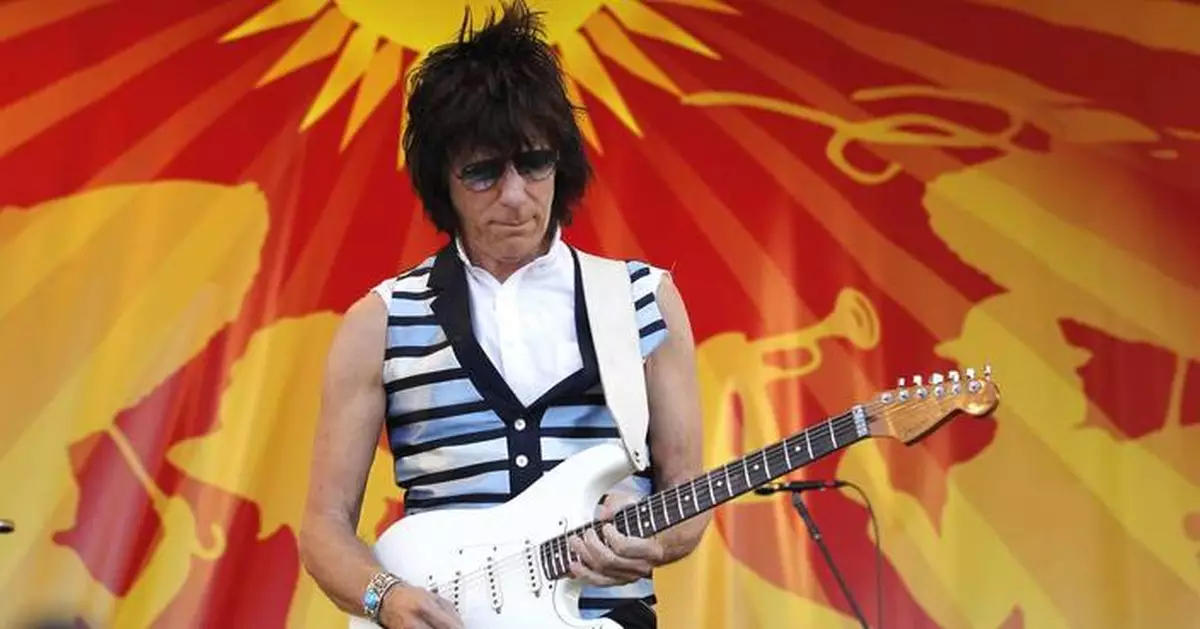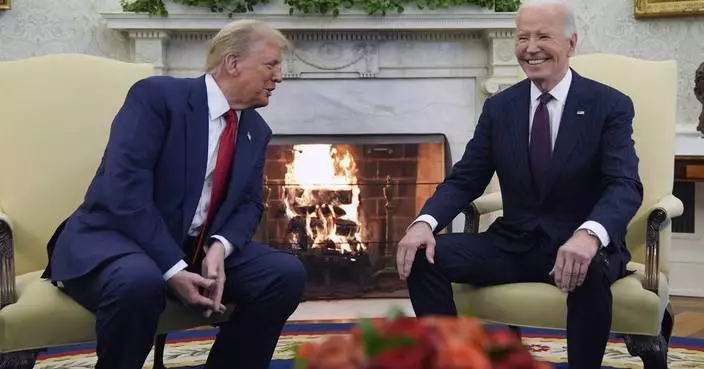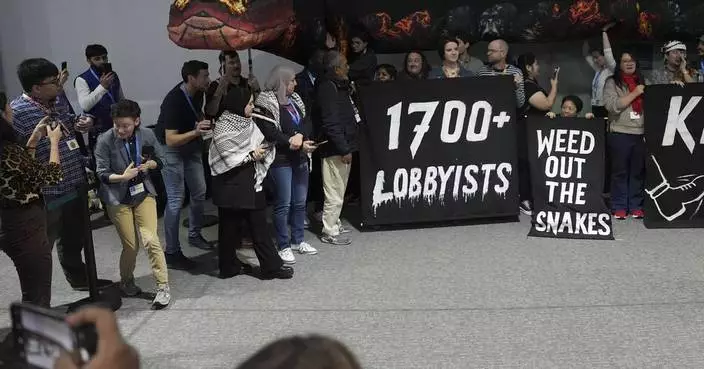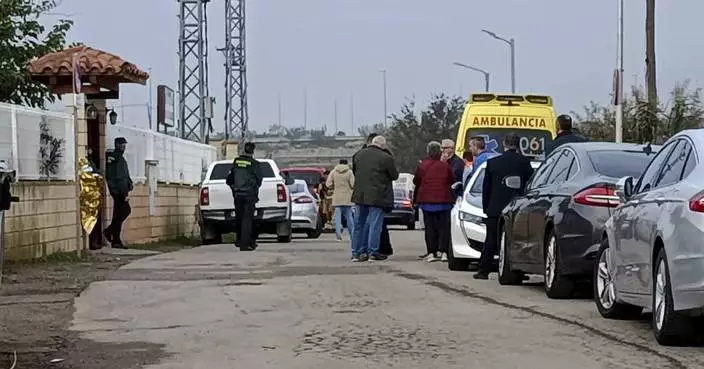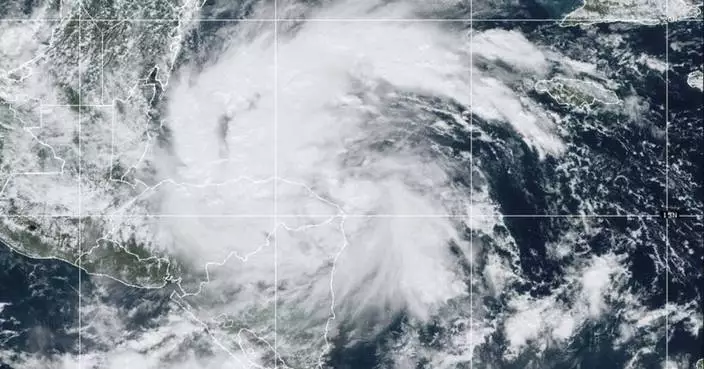LONDON (AP) — Musicians, collectors and fans have a chance to own a guitar god’s tools of the trade — instruments owned by the late Jeff Beck are going up for auction.
Christie’s announced Friday it will sell more than 130 items, including 90 guitars, from the collection of the Yardbirds and Jeff Beck Group guitarist, who died in January 2023 at age 78.
Valued at more than 1 million pounds ($1.3 million), the collection includes an oxblood 1954 Gibson Les Paul that Beck bought in Memphis in 1972 and played for the rest of the decade. The guitar, which is featured on the cover of Beck’s Grammy-winning 1975 jazz-fusion album “Blow by Blow,” is expected to sell for between 350,000 pounds and 500,000 pounds ($450,000 and $640,000).
Amelia Walker, head of Private and Iconic Collections at Christie's, called it “a really beautiful instrument, covered in grime and dust and signs of use.”
“I think it’s part of the appeal,” she said. “These are things that he used. They’ve got the indents of his fingernails on the fret boards. Some of them, the strings haven’t been changed for years. He played them hard. He didn’t see them as precious works of art -– they were his tools to ply his trade with.”
Beck came to prominence in the 1960s with hard-rock progenitors the Yardbirds and went on to a solo career that incorporated rock, jazz, blues and even opera. Twice inducted into the Rock and Roll Hall of Fame — with the Yardbirds and as a solo artist -– he played with everyone from Rod Stewart to Davie Bowie, Stevie Wonder and Tina Turner, and was known for his improvisational skill and the unique sound he got from the whammy bar on his preferred guitar, the Fender Stratocaster.
“He had an unparalleled ability to bend entire tones” on the Strat, Walker said. The sale includes Beck’s 1954 Sunburst Fender Stratocaster, valued at between 50,000 pounds and 80,000 pounds ($65,000 and $100,000), and a white Strat that was his staple instrument for 16 years, played everywhere from Ronnie Scott’s jazz club to the Obama White House. It has an estimated value between 20,000 pounds and 30,000 pounds ($26,000 and $39,000).
One of a group of 1960s guitar heroes that included Eric Clapton, Jimmy Page and Jimi Hendrix, Beck was revered by many peers as “the ultimate maestro,” Walker said.
As well as Beck’s beloved Strats, the sale features other models including a Telecaster-Gibson hybrid “Tele-Gib” valued at between 100,000 pounds and 150,000 pounds ($130,000 and $190,000).
“It didn’t really matter what he was playing, he’d always sound like Jeff Beck,” Walker said. “It didn’t matter what the amp was turned to or which guitar, he could still pick it up and make it sound incredible. It’s all in the fingers, and in his brain.”
The sale follows Christie's auction of some of Dire Straits’ guitarist Mark Knopfler’s collection, which raised more than 8.8 million pounds ($11.2 million) earlier this year, and memorabilia from model, artist and 1960s musicians’ muse Pattie Boyd, which sold for 2.8 million pounds ($3.6 million) in March.
Beck’s widow, Sandra Beck, said it was a “massive wrench” to part with the collection, but that “I know Jeff wanted for me to share this love.”
“After some hard thinking I decided they need to be shared, played and loved again,” she said.
A selection of the guitars will go on display at Christie's Los Angeles showroom Dec. 4-6, and the whole collection will be at Christie’s in London from Jan. 15 until the sale on Jan. 22.
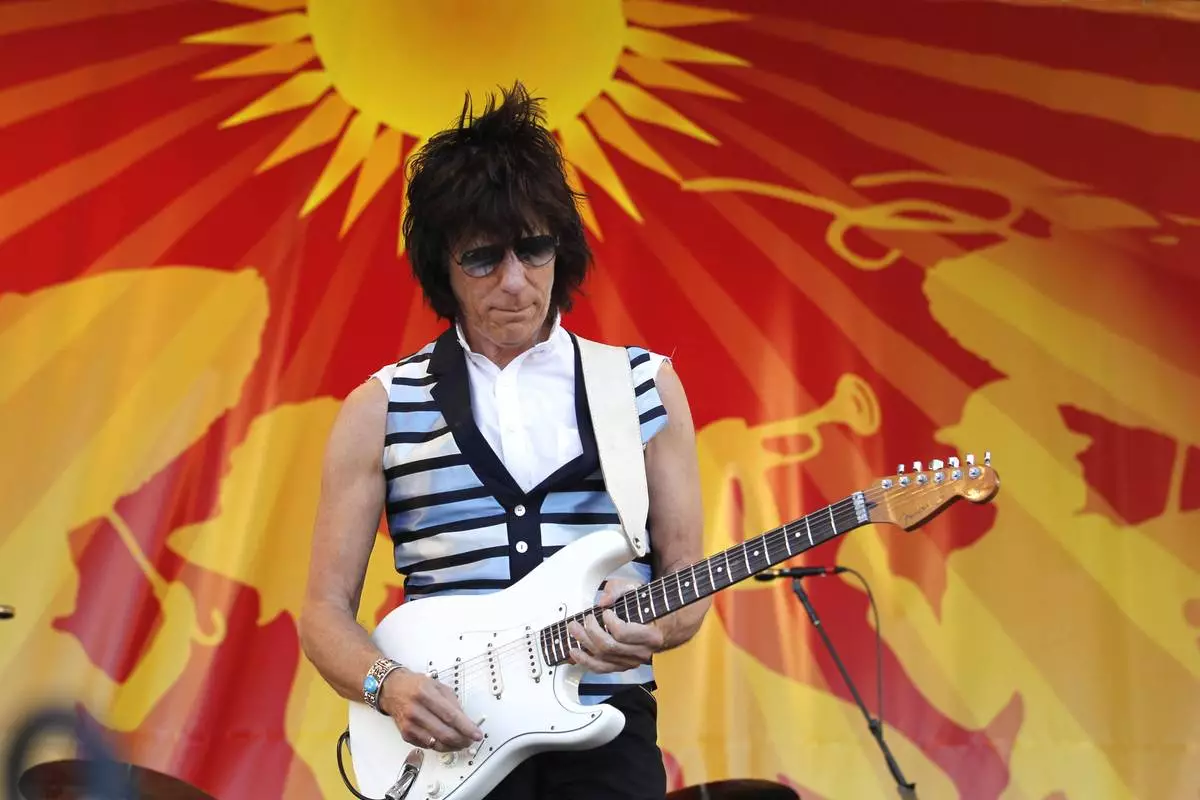
Rocker Jeff Beck performs at the Louisiana Jazz and Heritage Festival in New Orleans, Friday, April 29, 2011. (AP Photo/Gerald Herbert)
COLOMBO, Sri Lanka (AP) — The party of Sri Lanka’s new Marxist-leaning President Anura Kumara Dissanayake won a two-thirds majority in parliament, according to official election results Friday, providing a strong mandate for his program for economic revival.
Dissanayake’s National People’s Power Party won 159 of the 225 seats, according to the Elections Commission.
The Samagi Jana Balawegaya, or United People's Power Party, led by opposition leader Sajith Premadasa had 40 seats and was in second place.
The election comes at a decisive time for Sri Lankans, as the island nation is struggling to emerge from the worst economic crisis in its history, having declared bankruptcy after defaulting on its external debt in 2022.
The margin of victory will enable Dissanayake to carry out sweeping reforms, including a campaign promise of anew constitution, without having to rely on other parties.
Dissanayake was elected president on Sept. 21 in a rejection of traditional political parties that have governed the island nation since its independence from British rule in 1948. He received just 42% of the votes, fueling questions over his party’s prospects in Thursday’s parliamentary elections. But the party received a large increase in support less than two months into his presidency.
In a major surprise and a big shift in the country's electoral landscape, his party won the Jaffna district, the heartland of ethnic Tamils in the north, and many other minority strongholds.
The victory in Jaffna represents a great dent for traditional ethnic Tamil parties that have dominated the politics of the north since independence.
It is also a major shift in the attitude of Tamils, who have long been suspicious of majority ethnic Sinhalese leaders. Ethnic Tamil rebels fought an unsuccessful civil war in 1983-2009 to create a separate homeland, saying they were being marginalized by governments controlled by Sinhalese.
According to conservative U.N. estimates, more than 100,000 people were killed in the conflict.
Top NPP official Tilvin Silva described the victory as “complete and one with political weight,” because voters from all corners of the country voted for a single program. He especially thanked Tamil voters in the north for trusting a leader outside their stronghold.
“We have very well understood the weight of this victory. The people have placed immense trust on us and we must keep that trust,” he said.
Veeragathy Thanabalasingham, a Colombo-based political analyst, said northern voters chose the NPP because they were disillusioned with traditional Tamil parties but could not find a local alternative.
“The Tamil parties were divided and contested separately, and as a result the Tamil people's representation is scattered,” he said.
Of the 225 seats in parliament, 196 were up for grabs under Sri Lanka’s electoral system, which allocates seats in each district among the parties according to the proportion of the votes they get.
The remaining 29 seats — called the national list seats — are allocated to parties and independent groups according to the proportion of the total votes they receive countrywide.
Sri Lanka is in the middle of a bailout program with the International Monetary Fund, with debt restructuring with international creditors nearly complete.
Dissanayake said during the presidential campaign that he would propose significant changes to the targets set in the IMF deal signed by his predecessor, Ranil Wickremesinghe, saying it placed too much burden on the people. However, he has since changed his stance and says Sri Lanka will go along with the agreement.
Sri Lanka’s crisis was largely the result of economic mismanagement combined with fallout from the COVID-19 pandemic, which along with militant attacks in 2019 devastated the important tourism industry. The pandemic also disrupted the flow of remittances from Sri Lankans working abroad.
The government also slashed taxes in 2019, depleting the treasury just as the virus hit. Foreign exchange reserves plummeted, leaving Sri Lanka unable to pay for imports or defend its currency, the rupee.
Sri Lanka’s economic upheaval led to a political crisis that forced then-President Gotabaya Rajapaksa to resign in 2022. Parliament then elected Wickremesinghe to replace him.,
The economy was stabilized, inflation dropped, the rupee strengthened and foreign reserves increased under Wickremesinghe. Nonetheless, he lost the election as public dissatisfaction grew over the government’s effort to increase revenue by raising electricity bills and imposing heavy new income taxes on professionals and businesses as part of the government’s efforts to meet the IMF conditions.
Voters were also drawn by the NPP’s cry for change in the political culture and an end to corruption, because they perceived the parties that ruled Sri Lanka so far caused the economic collapse.
Dissanayake’s promise to punish members of previous governments accused of corruption and to recover allegedly stolen assets also raised much hope among the people.
Jeewantha Balasuriya, 42, a businessman from the town of Gampaha, said he hopes Dissanayake and his party will use their resounding victory to rebuild the country.
“People have given them a strong mandate. I am hopeful that the NPP will use this mandate to uplift the country from the present pathetic situation,” he said.
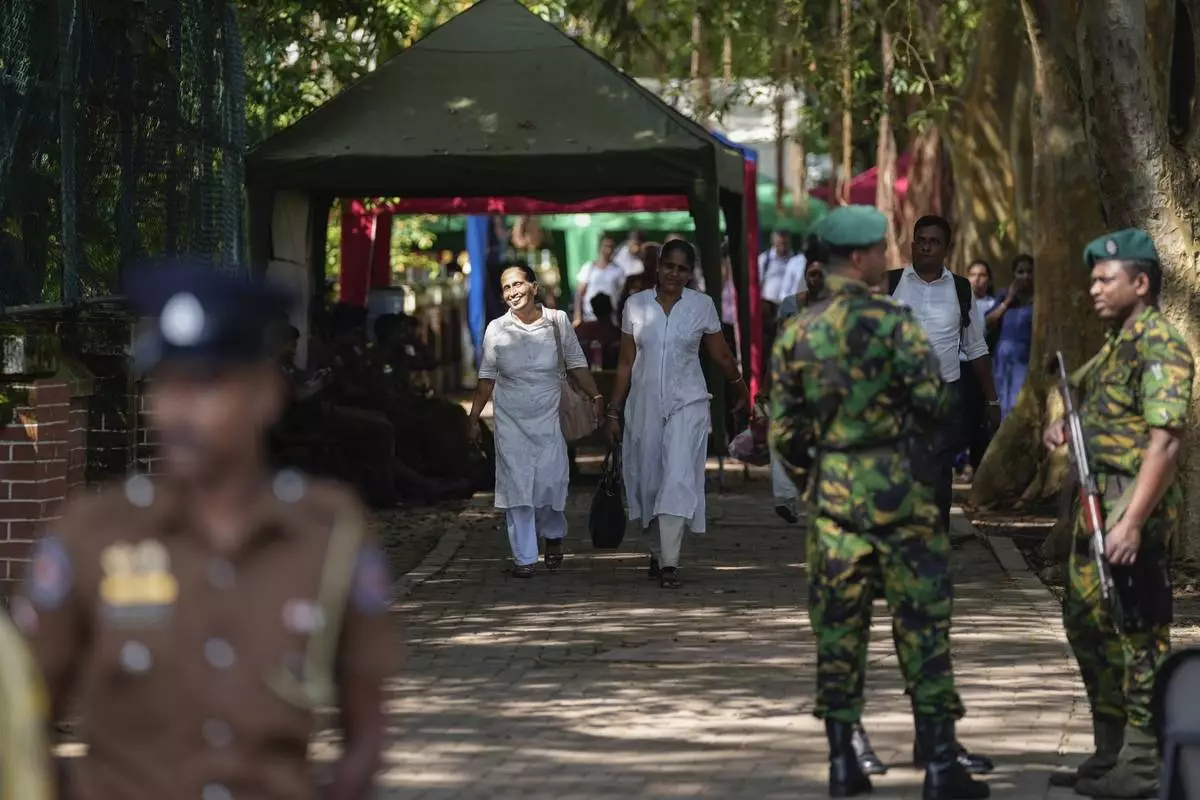
Workers leave a poll counting center following the parliamentary election in Colombo, Sri Lanka, Friday, Nov. 15, 2024. (AP Photo/Eranga Jayawardena)
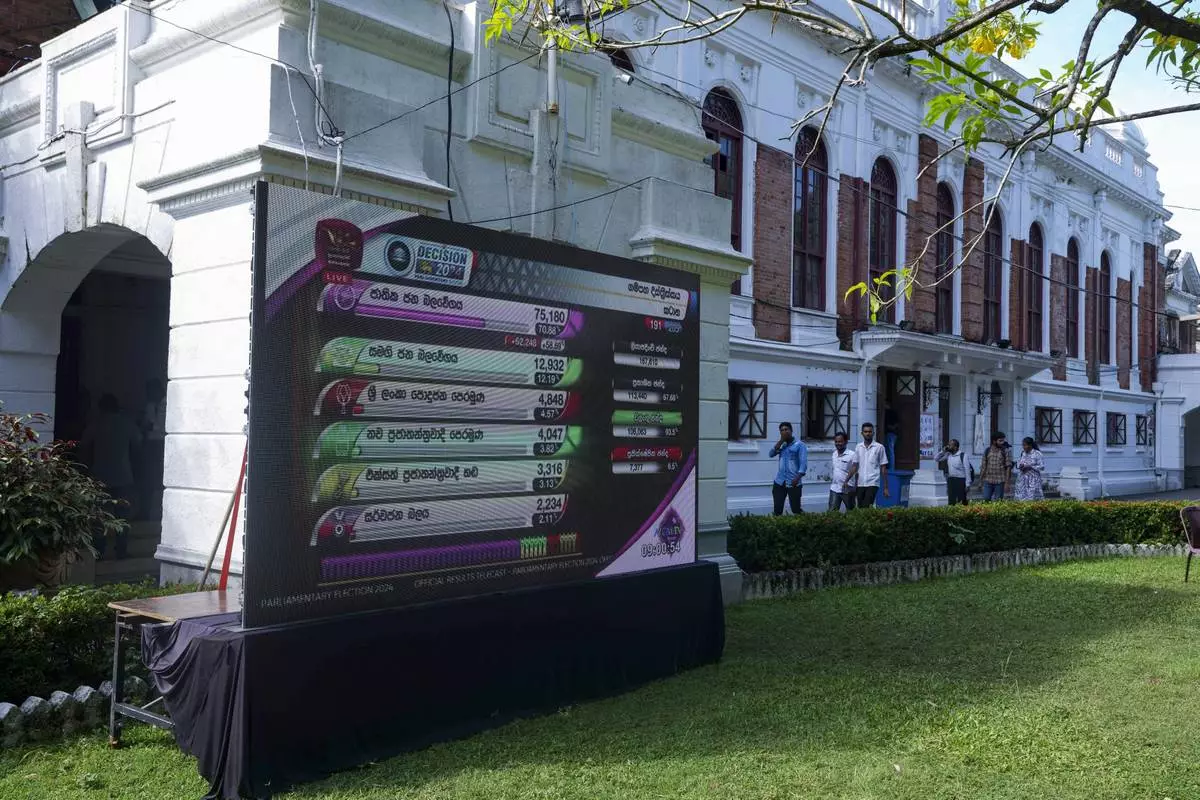
People walk past polling results displayed on a giant screen outside a vote counting center following the parliamentary election in Colombo, Sri Lanka, Friday, Nov. 15, 2024. (AP Photo/Eranga Jayawardena)
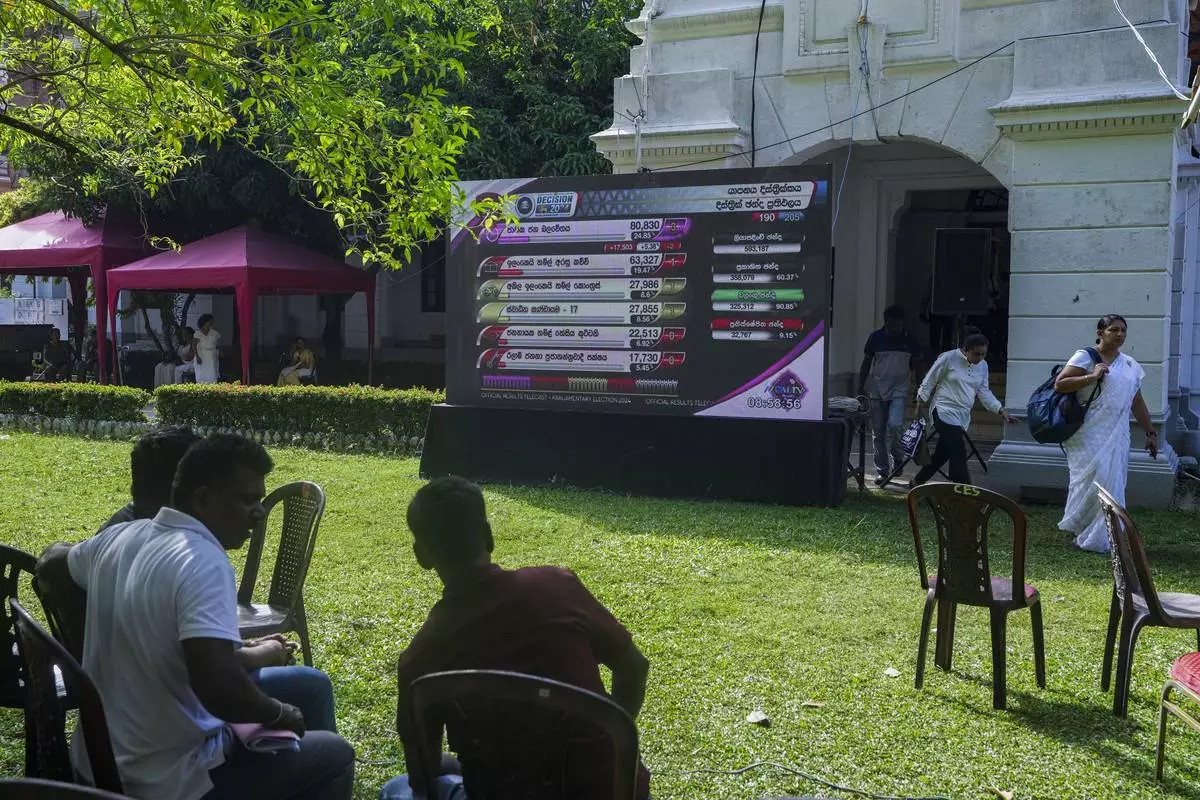
People watch polling results displayed on a giant screen outside a vote counting center following the parliamentary election in Colombo, Sri Lanka, Friday, Nov. 15, 2024. (AP Photo/Eranga Jayawardena)
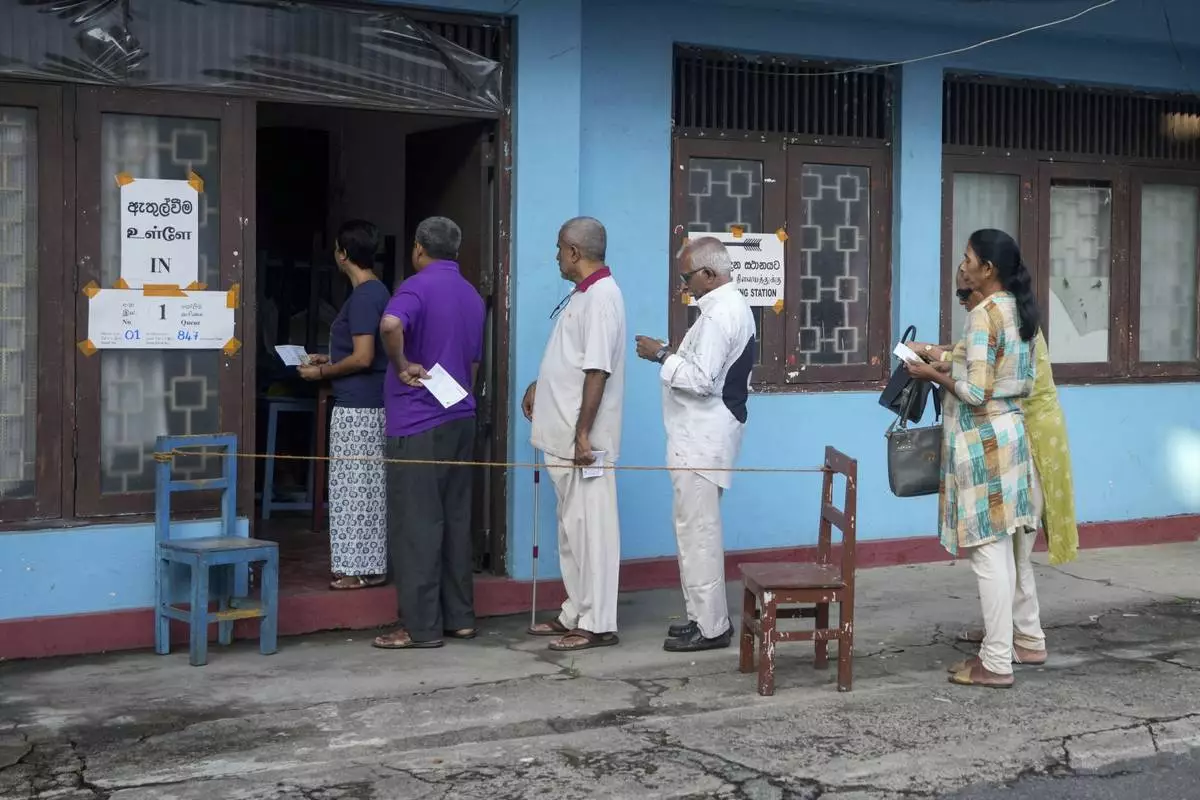
People queue up to cast their votes at a polling station during the parliamentary election in Colombo, Sri Lanka, Thursday, Nov. 14, 2024.(AP Photo/Eranga Jayawardena)
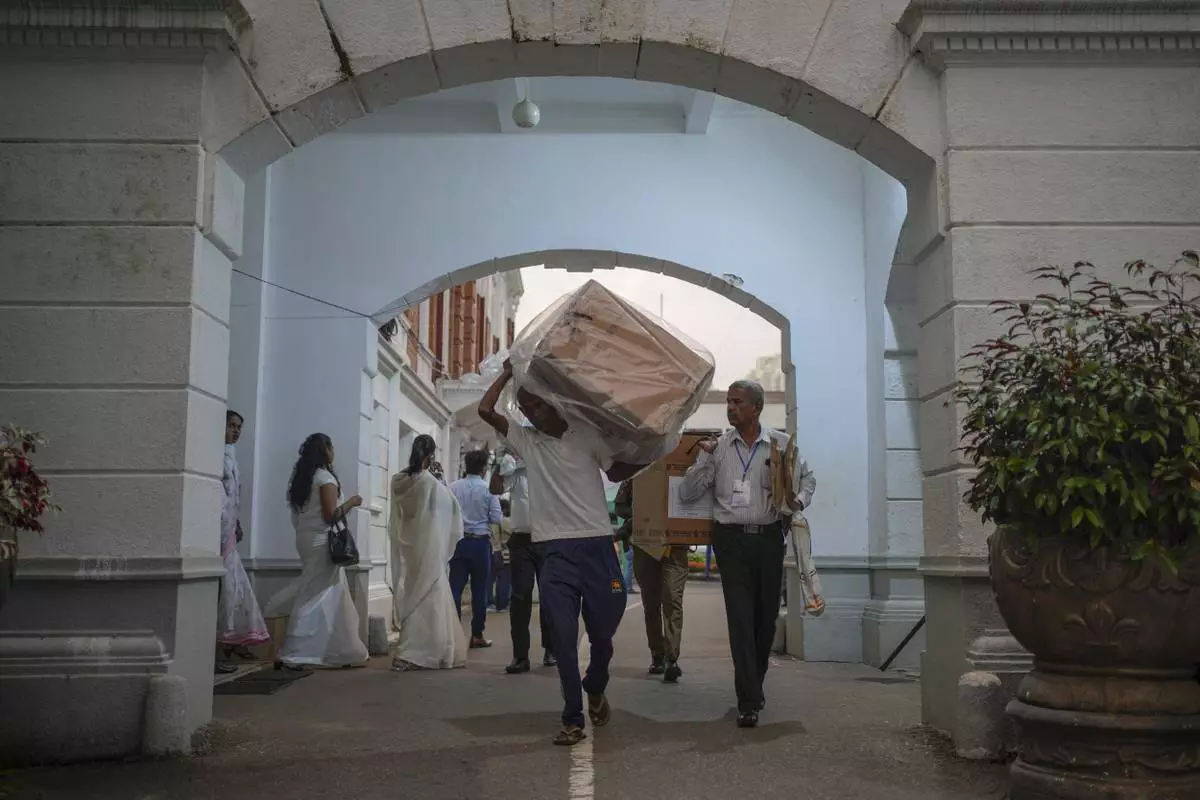
Polling workers return to a counting center with a ballot box at the end of the polling in the parliamentary election in Colombo, Sri Lanka, Thursday, Nov. 14, 2024. (AP Photo/Eranga Jayawardena)
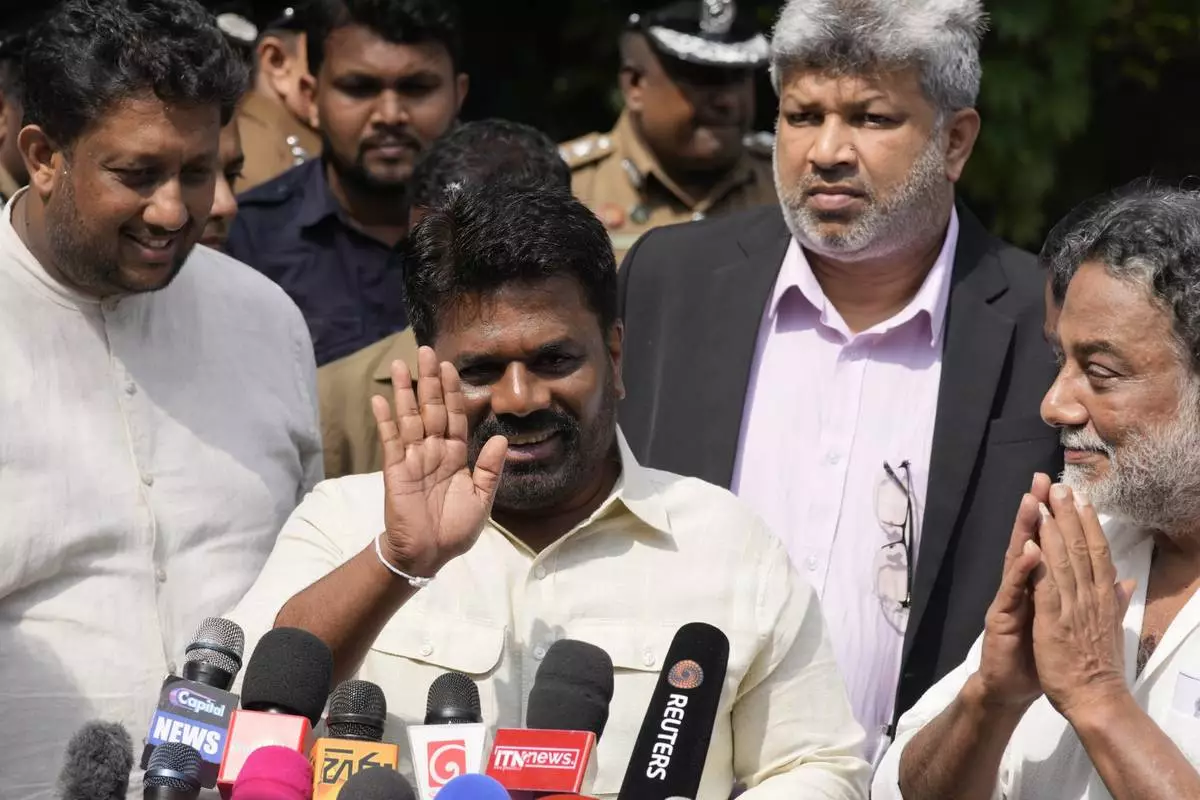
Sri Lankan President Anura Kumara Dissanayake leaves after casting his vote during the parliamentary election in Colombo, Sri Lanka, Thursday, Nov. 14, 2024.(AP Photo/Eranga Jayawardena)



